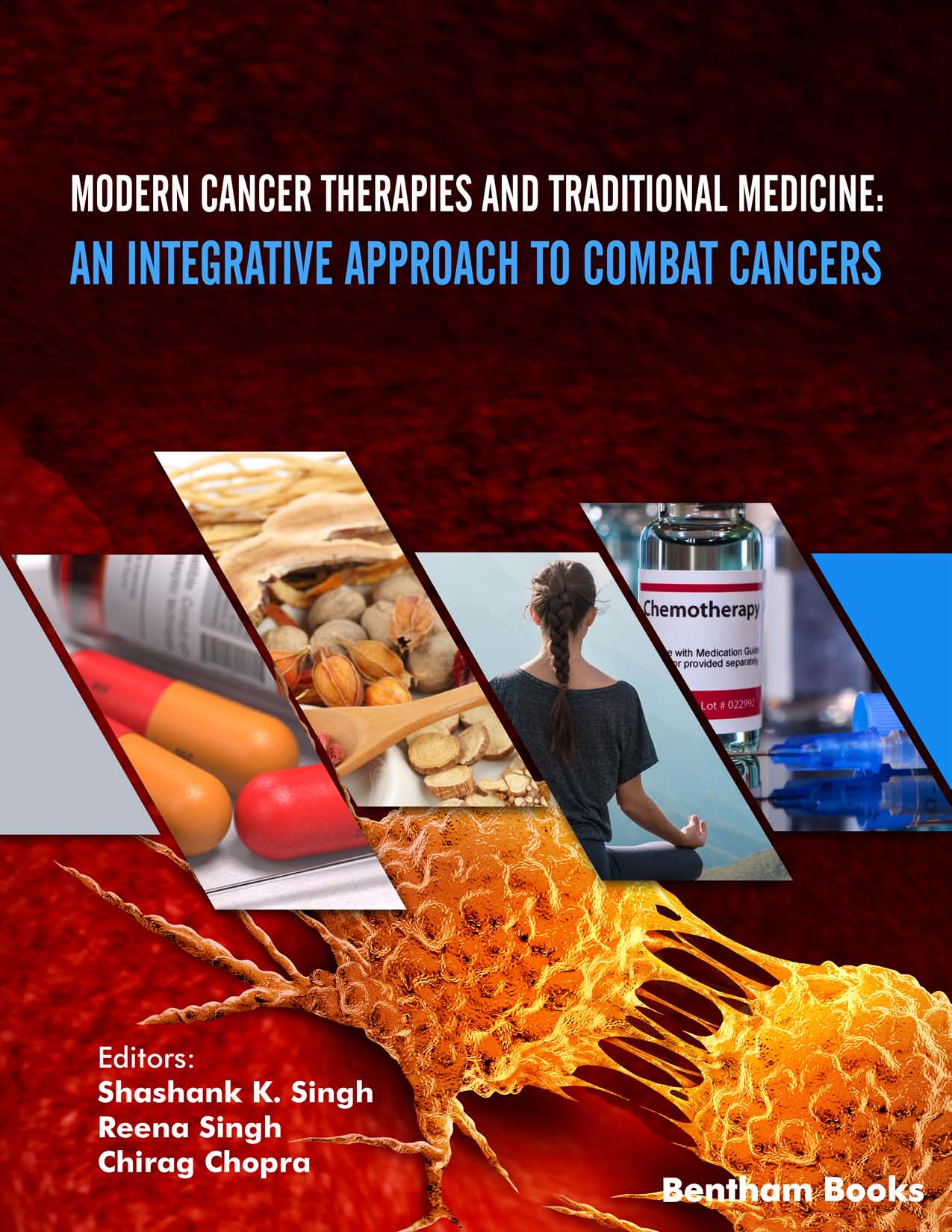Preface
Cancer is the king of maladies, and a force to be reckoned with. It claims one in every six lives lost in the world. The effective treatments of cancer, despite investing several years and significant money, can be counted on fingertips. The heterogeneity of tumors is responsible for inefficacy of many standalone therapies and combinatorial therapies. There is an enormous amount of research literature in which different therapies have been tried in model animals as well as human clinical trials. These therapies are found to be effective clinically. However, the sheer diversity of available data is also a challenge for clinical oncologists to stay updated on different new discoveries.
The book “Cancer Therapies, Traditional Medicine and Nutrition: An Integrative Approach to Combat Cancers” presents a unified text of different treatment modalities with an integration of the benefits of nutrition as well as traditional medicine. The book compiles the meticulously screened content in a comprehensible language for the readers at all levels. The book explains the evolution of cancer therapies over time and presents a wide range of scenarios where these therapies have been used previously. Over the years, there have been tremendous developments in the knowledge of the signalling pathways, which has provided many targets for drug design and development. The book also highlights the commonly-targeted signalling pathways contributing to translational research in the field. The main body of the first section of this book presents the various lines of cancer therapies being used in the clinics. The various biomarkers have been discussed in-depth to highlight the potential cancer diagnostic genes as well as to propose therapeutic targets. Furthermore, there is an excellent coverage of the available therapies, such as targeted molecular therapies in general and immunotherapy in particular. Monotherapies or conventional chemotherapies are now obsolete due to the development of chemoresistance in tumors. Currently, there is a lot of research being carried out for the development of effective therapeutic combinations. Therefore, the book also focuses on the latest developments in the combinatorial therapies used for cancer treatment.
The ultimate goal of anti-cancer research is to develop personalized treatments for cancer patients. With this aim, the research on the development of a wide range of therapies is being undertaken. Regenerative medicine is a field that involves the use of stem cells for therapeutic purposes. The recent innovations in the field of regenerative medicine for cancer therapy have been reviewed in the book. Ultimately, it is now possible to amalgamate the therapy and diagnostics together with personalized medicine, via “theranostics”. The Theranostic approaches and the innovations in development of Theranostic approaches have been explained in significant detail for a better understanding of the concept and the potential thereafter. Special mention is given to the various computational tools that are used in clinical oncology. These tools invariably help the clinicians in understanding the gene expression profiles of different cancers as well as analyse the imaging data for more accurate diagnoses.
The second section of the book is dedicated to the role of nutrition in the health and well-being of cancer patients. A commonly observed effect in cancer patients is malnutrition due to severe anorexia. As a result, the patients lose significant muscle mass. Also, a well-known side-effect of chemotherapies is nausea, ultimately leading to poor quality of life. The nutritional aspects need to be managed right at the time of diagnosis, during therapy as well as post-therapy. The chapter on nutritional aspects brilliantly summarizes the effects of nutrition on patient management as well as reviews the various tools for screening and assessment of a patient’s nutritional status. The remainder of the second section contains the knowledge from the oldest of our literatures, i.e. traditional medicine The different aspects of traditional medicine have been aptly reviewed and written for a deep understanding of the elements of traditional medicine (including Ayurveda), their effects and benefits. There is an admirable piece of text written on the benefits of Yoga in improving the outcome in cancer patients. This traditional knowledge has been passed down the generations and still persists in several nations. The second section provides a comprehensive understanding and knowledge about the salient features of traditional medicine, Himalayan herbal medicine, Ayurveda and the practice of Yoga.
We would like to thank all contributors to the book for their excellent manuscripts. Special thanks go to Ms. Fariya Zulfiqar (Assistant Manager Publications) and her entire team for being such strong support and guidance.
Shashank K. Singh
Cancer Pharmacology Laboratory
CSIR-Indian Institute of Integrative Medicine (IIIM)
Jammu, J&K
India
Reena Singh
Department of Biotechnology
School of Bioengineering and Biosciences
Lovely Professional University
Phagwara, Punjab
India
&
Chirag Chopra
Department of Molecular Biology and Genetic Engineering
School of Bioengineering and Biosciences
Lovely Professional University
Phagwara, Punjab
India

